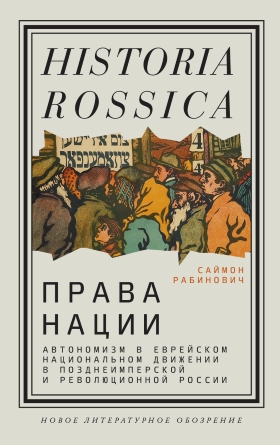
Translated from English Kanischeva Evgeniya, Summ Liubov, Panich Svetlana
2021. 140 x 215 mm. Hardcover. 400 p.
ISBN 978-5-4448-1274-7
Annotation: In the last decades of the existence of the Russian Empire, one of the most painful public issues was the question of national rights. The large Jewish population of Russia was legally discriminated against. In the western provinces, it faced the national demands of its neighbors - Poles, Ukrainians, Lithuanians and other ethnic groups settled more compactly than Jews. At the beginning of the twentieth century, the education and political activity of Jews grew, they possessed a conscious national, religious and cultural identity and demanded not only civil, but also national equality. The ideological form of the aspirations of the Jewish population of Russia was given by the historian Semyon Dubnov (1860-1941), who developed the concept of national extraterritorial autonomy. From Dubnov's point of view, the unity of the nation is ensured not so much by its own state as by voluntary adherence to a common system of cultural values and collective historical memory. By 1917, the demand for national non-territorial autonomy was included in the programs of all Jewish parties and organizations in Russia.




